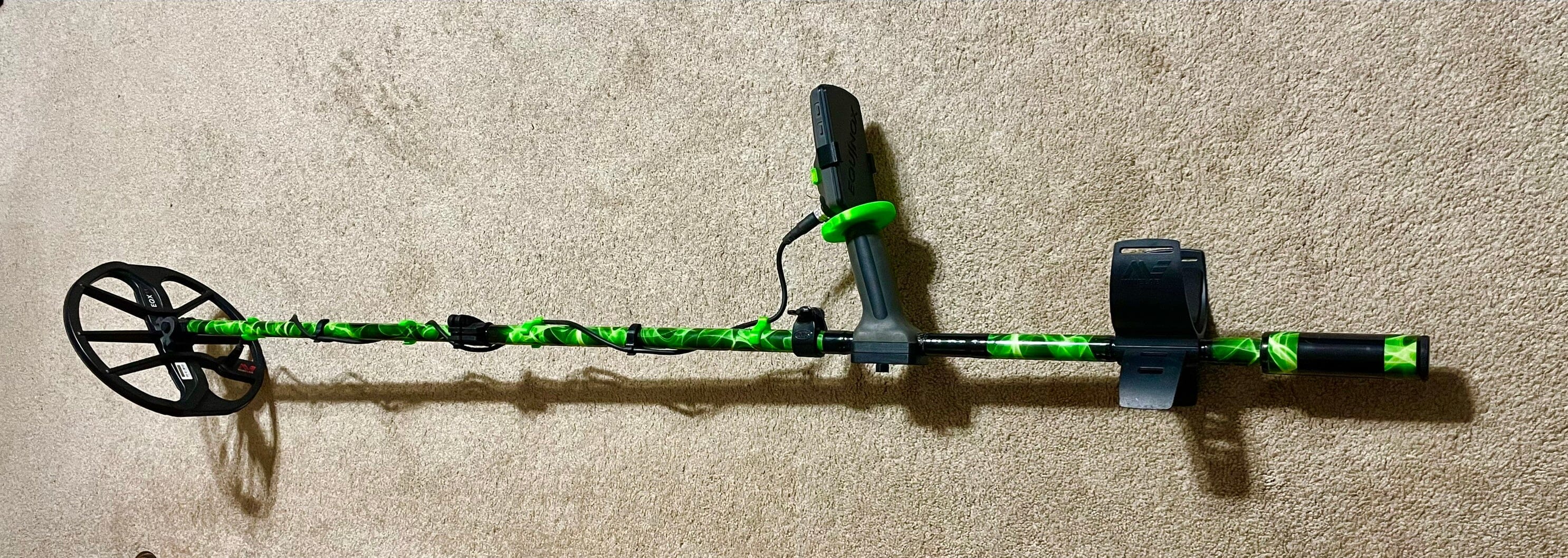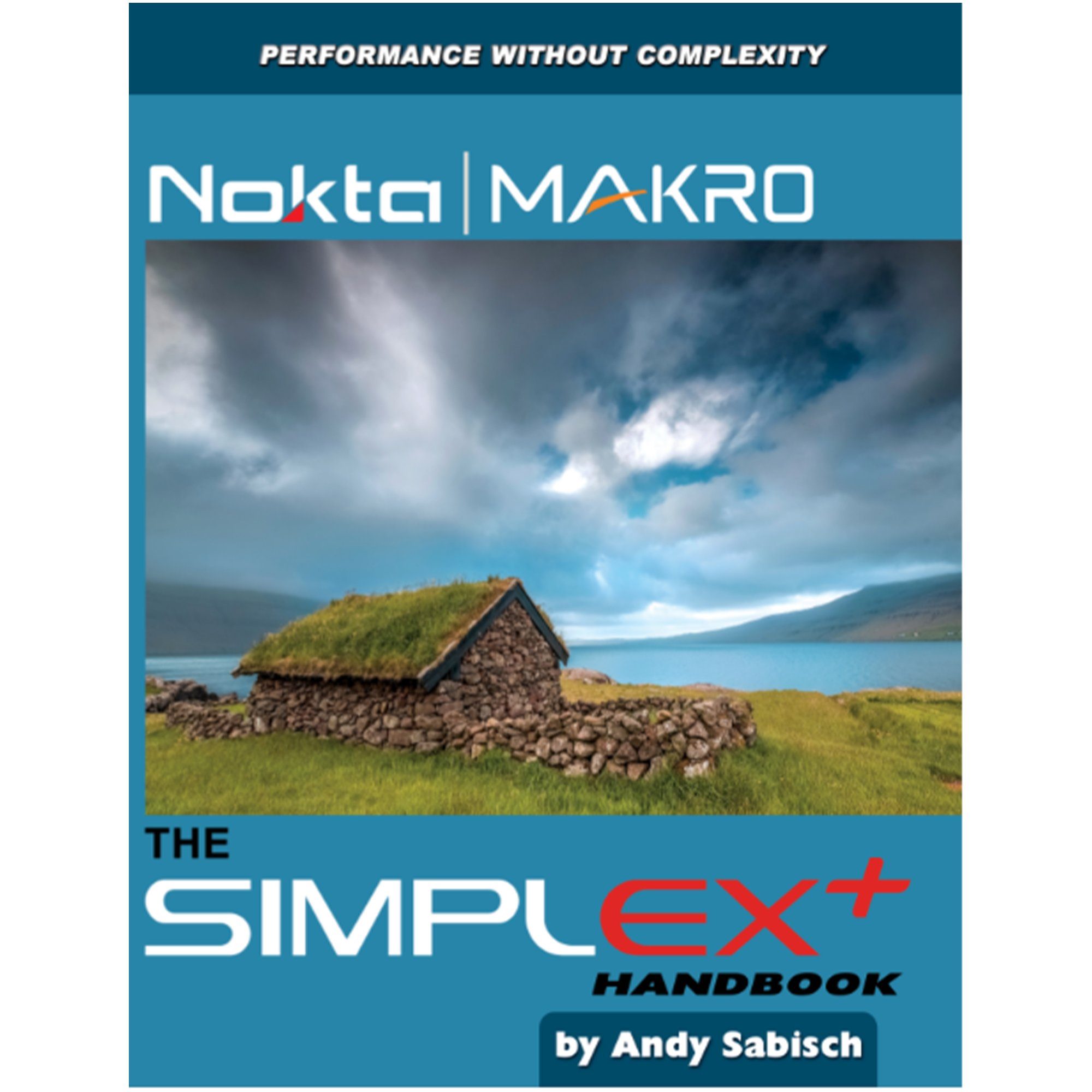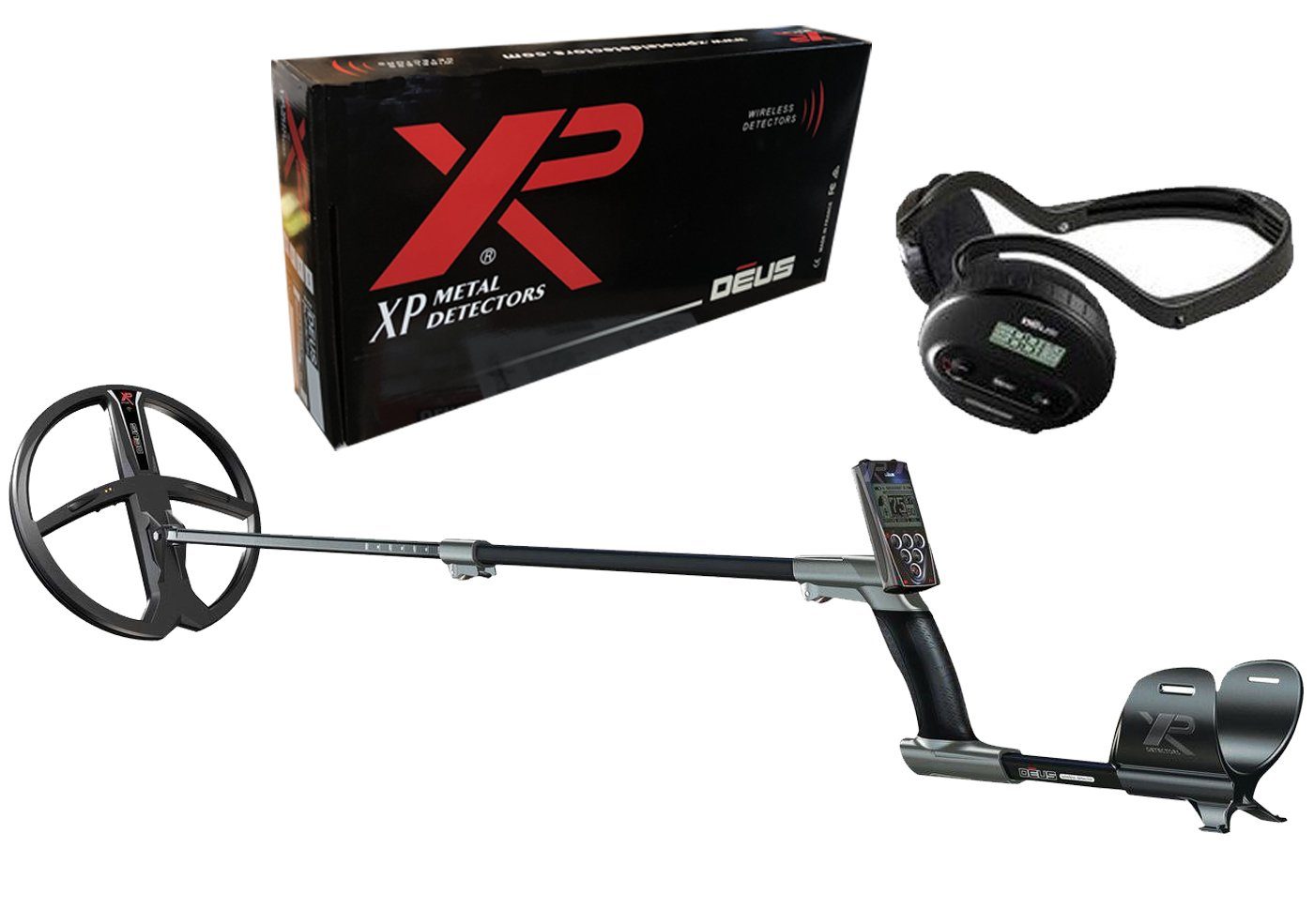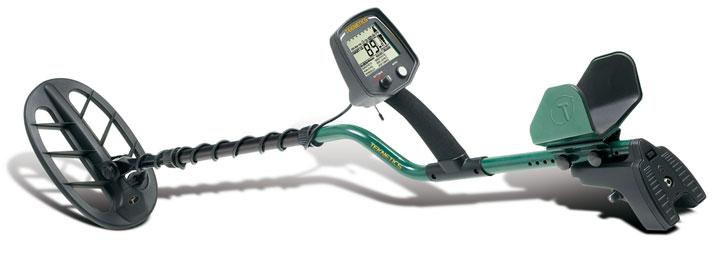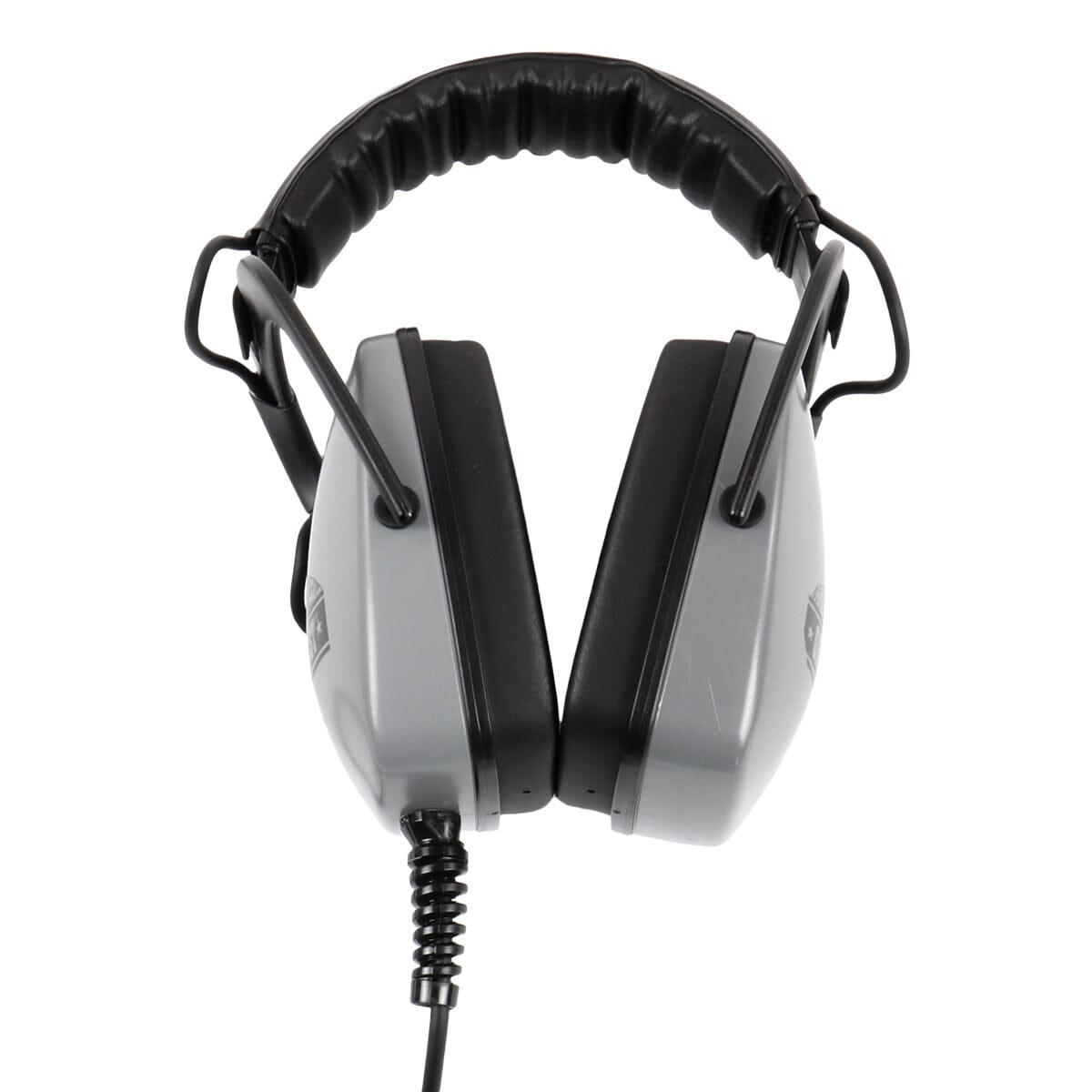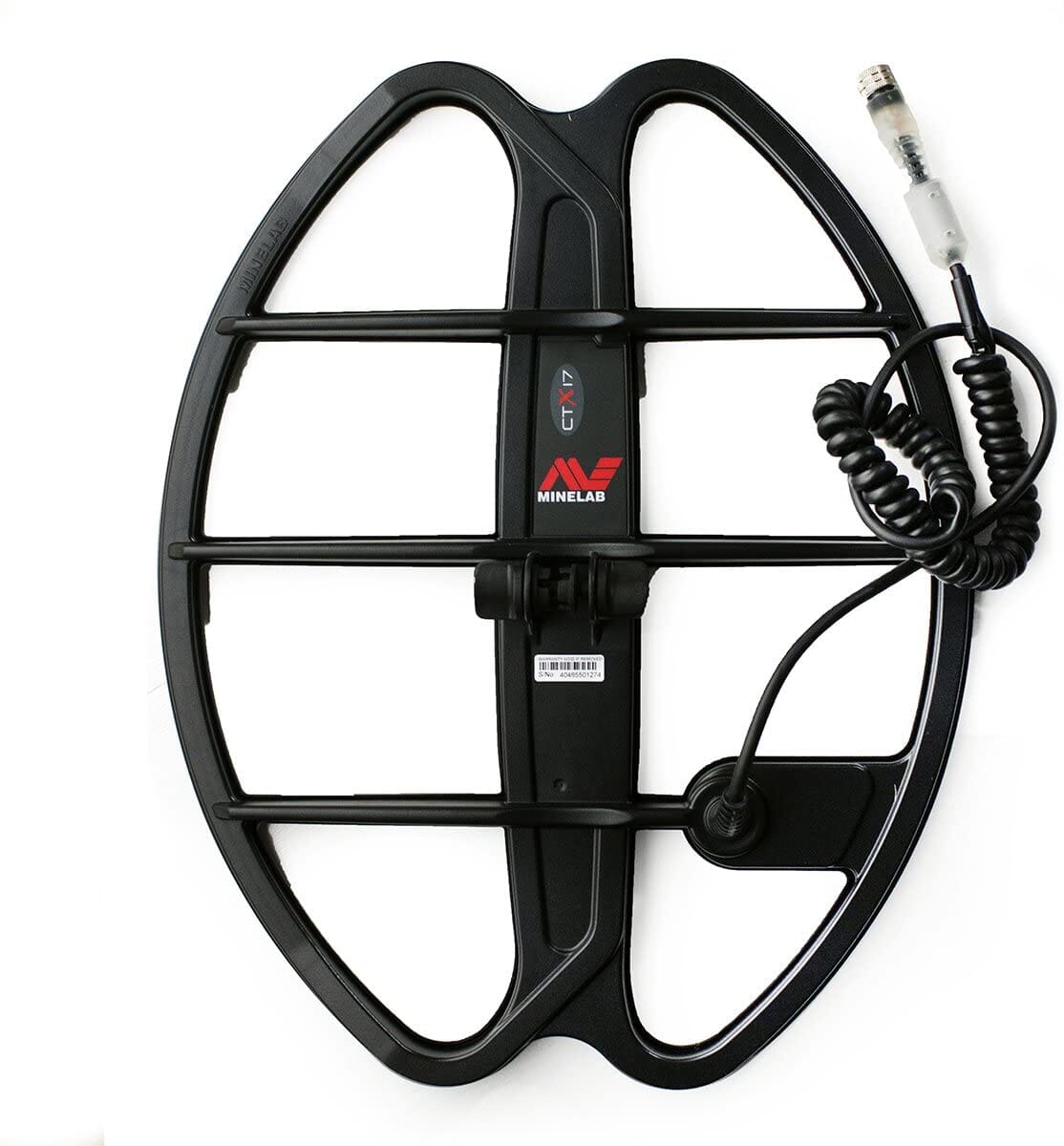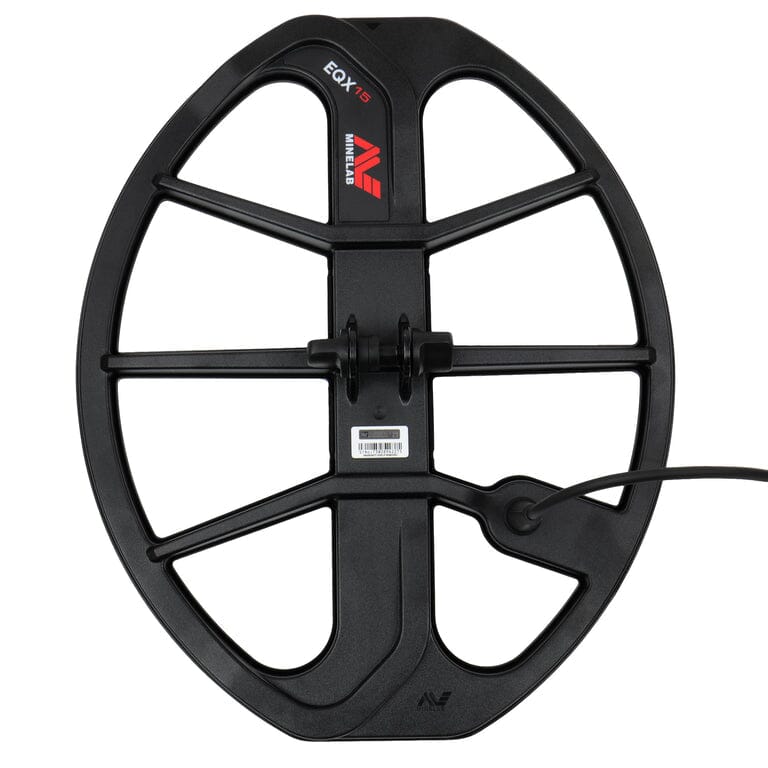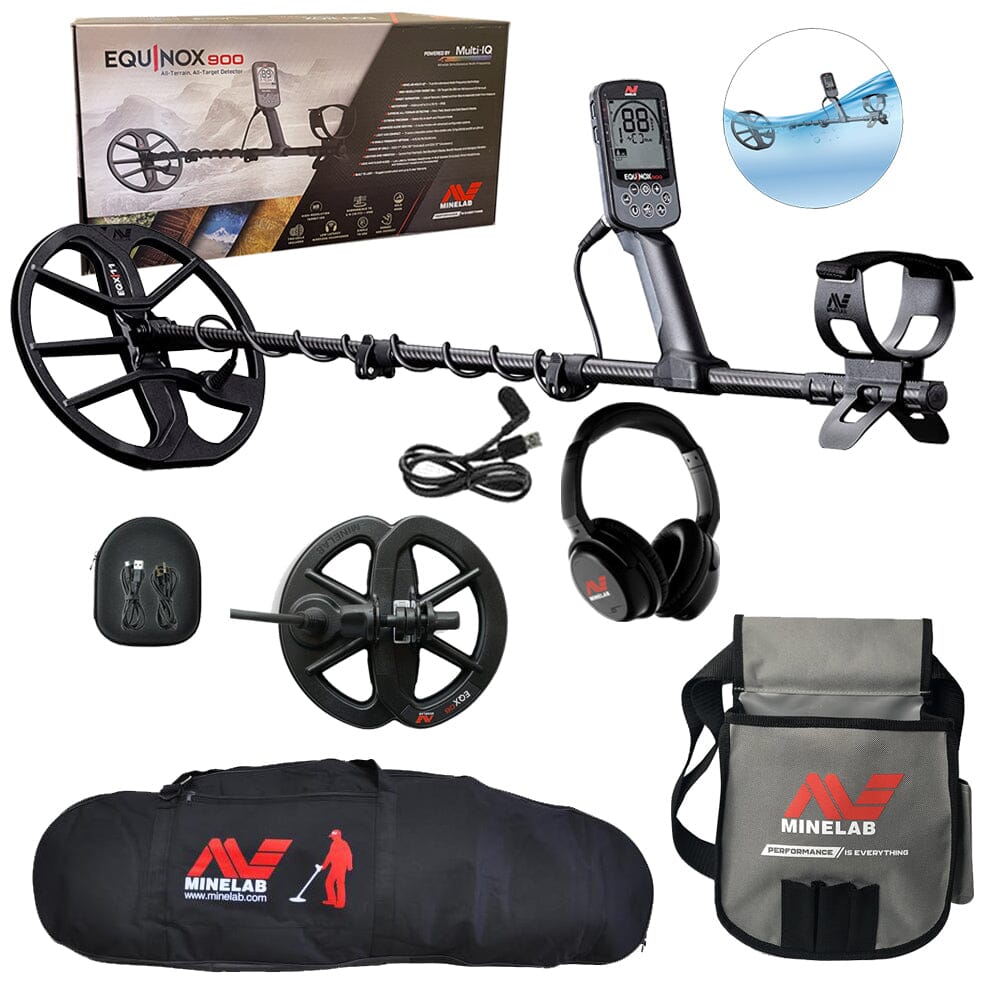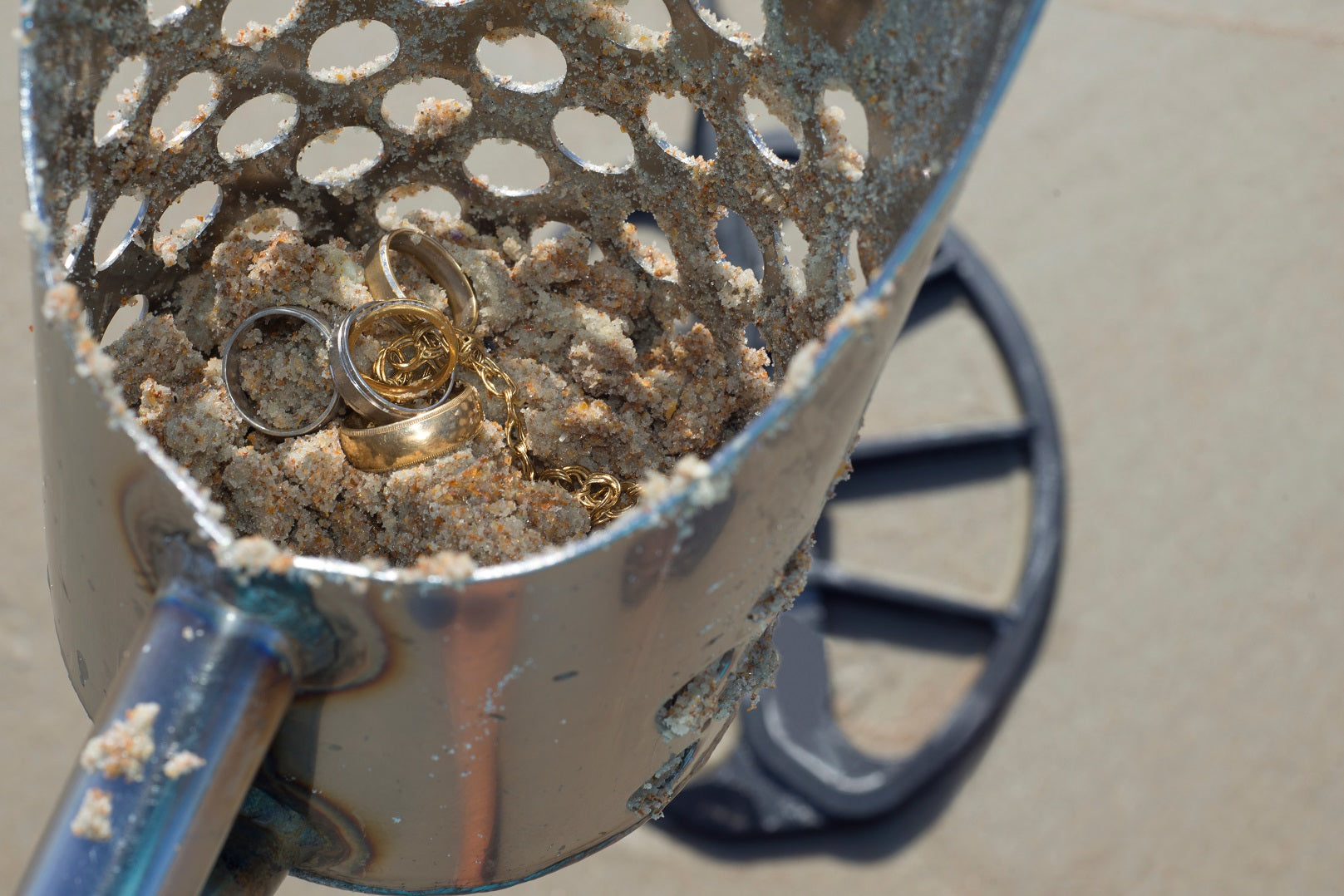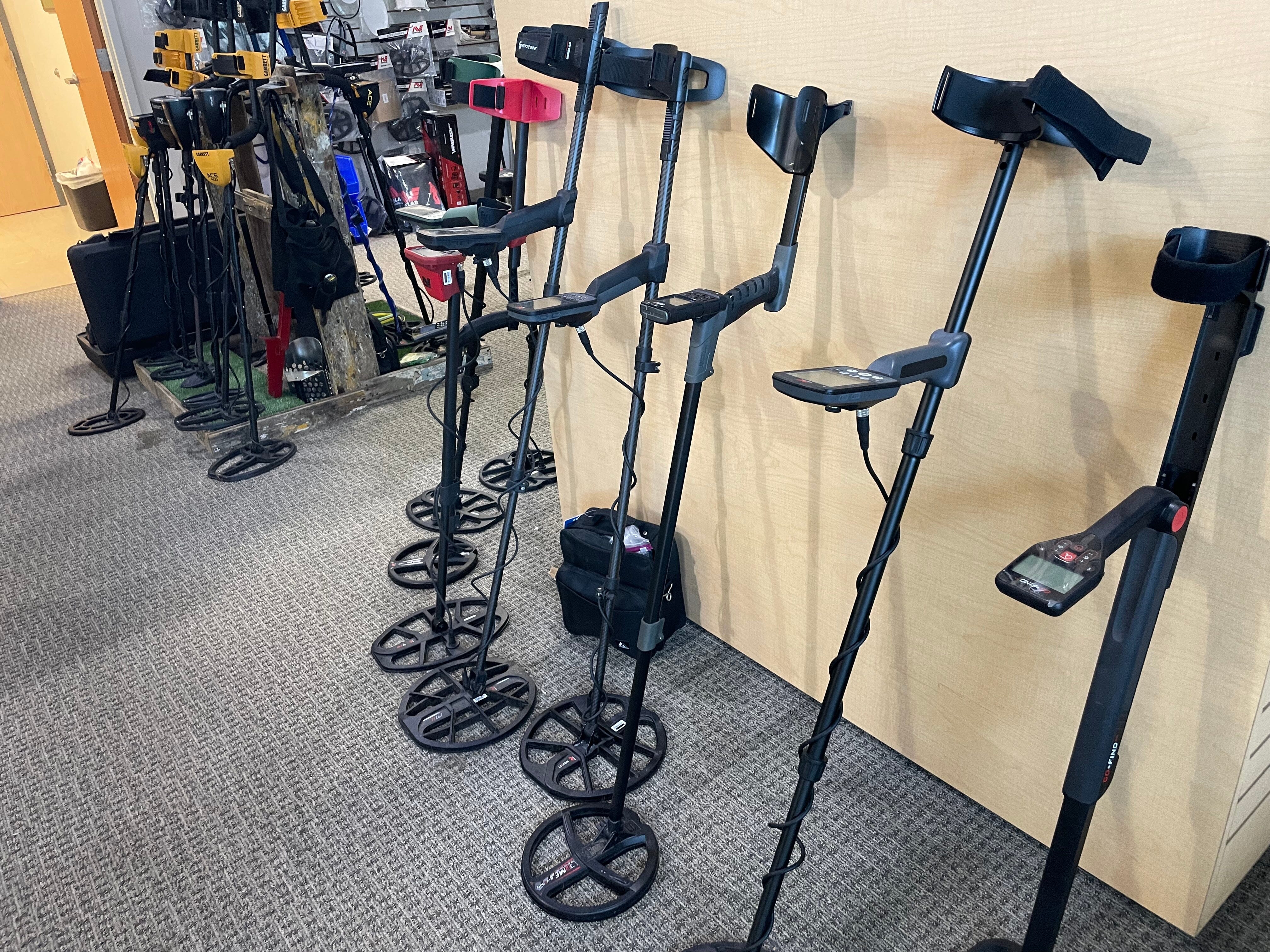Menu
Metal Detecting in The Water - Fresh & Saltwater - Tips and Tricks of The Pros
As things begin to warm up, foliage erupts, and biting insects and reptiles start to emerge, it becomes more difficult to find a place to safely, and enjoyably metal detect. This time of year more people lean towards the water for a place to find treasure. We are going to discuss some of the best places to detect and some tricks and tips to help you be more successful. We will cover the basics and provide resources to dig deeper into the wonderful world of water hunting with a metal detector
Where to Metal Detect in The Water
Saltwater vs. Freshwater Beaches
If you are fortunate enough to live near the coast(s), this saltwater beaches are an obvious selection. Millions of people flock to the costal beaches every year to splash around and seek refuge from the soaring temperatures. A rule of thumb metal detecting is Time + Traffic = Treasure. So, with the millions of beach goers coming and going, the continually churning of this "traffic" means the beaches are constantly being replenished. And, since the beaches have been visited for years, and years, the equation definitely applies to hunting costal beaches. Hunting salt water beaches is different than hunting fresh water as saltwater is heavily mineralized due to the high concentrations of salt. This mineralization can make many metal detectors rather useless in wet sand or surf conditions. Although they will work just fine on dry beaches.
Choosing the right metal detector is important. Not any detector will be ideal. We won't get into which detectors are best in this article, but whatever metal detector you choose it is important to KNOW YOUR METAL DETECTOR. Get some experience prior to heading to the beach or water. Doing bench tests, burying objects, and learning how your metal detector works on dry land is an important step. By doing this you will have more knowledge before going out to the beach and have much time to be successful during the short time you may have on the beach or in the water.
Click the link on the article below to learn which
metal detectors handle saltwater the best.
Inland/freshwater beaches will certainly yield their share of valuable and interesting items. Whereas freshwater beaches will provide more modern finds such as rings, watches, necklaces, and modern coins, saltwater beaches and surf will provide you an opportunity to find more valuable and historic finds. Since explorers often would arrive in ships and use the shores as a way to travel, there is a chance you could recover old Spanish coins, jewelry, and artifacts.
Another common difference between metal detecting freshwater and saltwater beaches is the hunting conditions. First, a lot of costal beaches will have finer sand that make recovering items a bit easier. Many inland beaches, although perhaps visited by crowds for a century or longer, have coarser sand in combination with larger rocks and pebbles or mud and clay.. This means that not only were they likely less visited, they make recovering targets more difficult.
Metal Detecting Rivers and Streams
Not all of us are lucky enough to live near a beach at all. Inland metal detectorists who desire to get wet while metal detecting may have to look at other options. The good news is over the years, whether it is near the coast or in the great plains, people have always flocked towards the water.
Early settlers typically stayed within a close distance of a stream or river so they could water livestock and have a reliable source for their daily water needs. Additionally, while traveling from place to place, they often had to cross these obstacles. If you can locate what may be noted as a "ford" on a historic map, hunting downstream from these locations can provide a great place to search for history and valuables. The crossing at these locations did not always go as planned. With the end result sometimes being a turned over wagon or horse and rider being swept downstream losing some or all of their possessions.
Later on, say in the late 1800's or the early and mid 20th century, when swimming pools were not as common as today and air conditioning was hard, if not impossible to obtain, streams and rivers were great places to simply cool off. Finding these swim holds might take a little research, but it is not impossible. Local historic societies, and books are loaded with black and white images of large groups of people gathered for reprieve usually they are labeled with the location. A little field research will help you find the exact location. Talking to the ole' timers is also a great way to learn where to locate these swim holes and I am sure they would love to share the information. Don't discount modern swim holes either. People around the world, to this day, still flock to freshwater swim holes. These are much easier to locate with books written on where to find them. For instance, a simple Google Search for water holes near us found this book, "Swimming Holes of the Ozarks: A Guide to 85 Great Places to Cool Off in Arkansas and Missouri". Just try the same search in your area to see what is available.
Trick and Tips from The Pros
Once you determine where you are going to metal detect, there are some very basic and fundamental tips and tricks that will help you determine where on that beach to metal detect, what modes to use while metal detecting these areas, and other tidbits of information to help you be more successful. Here are a few:
Public beaches are great places to find a lot of targets. However, private beaches, such as those found on private resorts may yield fewer targets, but when you do find a piece of jewelry in one of these locations, the odds are it will be higher quality and more valuable. Timeshare and beach resorts often have private beaches inaccessible to everyday metal detectorists. Very rarely will you see a detectorist on one of these beaches. I think of it as virgin ground - a place I found my very first gold ring among several other silver rings.
When to Hunt The Beach
You will notice that most detectorists hunt in either the early morning or late evening. This is because it is a lot easier detecting when you are not detecting around a bunch of beachgoers. Not only will you avoid people coming up and interrupting your hunt but you will have less obstacles to hunt around such as sunbathers, sand castles, and people walking the beach.
Hunting during low tide allows for ground to be opened up that would otherwise require you to find submerged targets. The good thing about this is, depending on tide tables, these times are often during times when people are not present.
Hunting at night can also be easily done. A headlamp or flashlight are the only things you need in addition to the other standard items. Typically, there is nobody around and you don't risk sunburn.
Where and When to Metal Detect on The Beach
Sure, the areas where people travel to and from the beach will be a source of good finds since there are a lot of people using these causeways and there is potential for things to fall out of bags and pockets. But there are a couple other places you should look as well.
While the books I mention below will guide you to some very detailed and knowledgeable places to detect on the beach and in the water, I will take a simpler approach.
Near and around cabanas, lifeguard stands, water sports rental areas, and beach volleyball courts are great places to start. The best time to hunt these sites will be early morning or late evenings after these are shut down and people have packed up for the evening.
There is an area at the edge of the beach where people lay their towels. Often times it is at the top of the ridge just before the slope that leads to the beach. These are obvious places where people are stashing their belongings, taking off jewelry and laying it on their towel beneath some clothing. I have experienced people having lost jewelry when they lift up their towel and remember later they had done this. By then, it is too late. For them, without a metal detector, to remember exactly where, hope they can sift through the sand to find it, and hope nobody else has, is next to impossible.
Hunting shallow water along the beachline allows you to capitalize of some really great small jewelry opportunities as this is where mother and children accumulate to play in the relatively safe, low, calm water. There is good opportunity to find engagement rings, small gold children's rings, earrings, bracelets, etc.
Hunting deeper water will allow you to find larger items like watches, large men's bracelets, wedding bands, etc. Most people that lose jewelry at this point have very little chance to recover it. If they even realize the moment they lost it, recovering something under water so small in even waist deep water is a task for an experienced jewelry recovery expert.
How to Hunt The Water
Hunting on the beach and especially in the water isn't something that any novice can do effectively. If you see someone with a brand new, lower level, single frequency metal detector swinging like crazy to cover as much ground as possible during their short vacation, have no fear. They won't beat you to the good targets, they will fill their pouch with modern coins and junk. However, pay attention to these people. They can be good indicators as to where the hot spots are. Follow them with your advanced level, beach worthy detector and you can clean up after them.
Slow down when you are hunting on the beach. While there is a chance to find some easy pickings, the deeper targets are often the ones you are looking for. Remember heavy metals will keep sinking until they hit a layer which is difficult to penetrate further. By listening to your detector and digging faint targets you can get what other are missing.
As is my philosophy with metal detecting almost anywhere, you need to dig almost all of the targets. While obviously you may want to avoid all of the targets that are clearly iron. However, if you are avoiding pull tabs and other targets that are in the mid-range, you will miss most of your valuable targets. Additionally, if you get a target you think might be iron but you are getting a "mixed signal" it could be a result of "iron masking". This is when a good target is close enough to a piece of iron that is throwing off your detector. This happens more often than people think. The practice of digging these mixed signals should be a common practice in most places.
Who to Hunt With
In Gary Drayton's book, "Hardcore Beach Hunting," he discusses how he likes to be a lone wolf when metal detecting. Why share your good locations with someone who may poach your loot. It is not uncommon on wet or dry land for a novice detectorist to reveal the location of their most recent awesome find only to see other detectorists flock to clean up after them. As I mention this book, it is a good read. Gary gets down and dirty discussing tactics to prosper above the rest.
It is also important when you are hunting in a public area to not get overly excited when you find something of value. Not only will this avoid a huge group of people engulfing you with the inevitable, "Hey I lost my ring around here." Although most of the time it is said jokingly, I promise you, if you detect the beach long enough, someone will see you metal detecting and say just that.
Furthermore, you need to be aware that there are professional metal detectorists that are on the beach daily. Sometimes with a metal detector, sometimes without one. In their off time the really keen ones will be out there simply watching others detect, making note of where they are and what they are finding. It may be the old man who is gravitating near you or it may be a young, energetic, detectorist that took the day off to relax and have cocktails in a cabana...and to watch.
Where to Learn More
Much of what I know from hunting the beach comes from my experience doing it in Florida, Mexico, Puerto Rico, and Hawaii. I have found a lot of junk (including a cache of recently buried liquor and beer :) but I have also found some very exciting jewelry. Although some people might consider me a "Pro", Some of the tidbits of information for this article must be given credit where it is due.
I found these 5 beers were found along with a bottle of vodka, and a bottle liqueur during a metal detecting night hunt on a beach in Kauai, Hawaii.

To dig deeper into the subject of metal detecting in the water I would like to point you to two excellent resources. Books from authors Gary Drayton (you will know him from his appearances on the hit TV show, "The Curse of Oak Island") and a stellar detectorist named Clive James Clynick are in depth guides for beginner to expert on exactly how and where to metal detect in the water.
While I do believe that metal detecting on the beach is the "best' place to metal detect, it is not because it is easy detecting. It is because there is sand, surf, and an ocean breeze. If you get hot you can simply take a dip in the water. Additionally, in many cases, it is the easiest place to dig. Metal detecting sand scoops make it easier and quicker to recover targets. And, as I have always said, the guy who digs the most wins. Being able to dig more targets quickly will increase your odds of finding a good one.
Regardless of where you decide to swing the stick, wish you the best in your endeavors and hope this article was insightful and a little entertaining.
Good luck and happy hunting!
Stay tuned to our blog for upcoming articles and episodes by following us on your favorite social media outlet to stay informed of releases:
YouTube: HighPlainsProspectors
Facebook: @highplainspropsectors
Instagram: #highplainsprospectors
Twitter: @HProspectors
Pinterest: @highplainspro0247
You Might Be Interested In
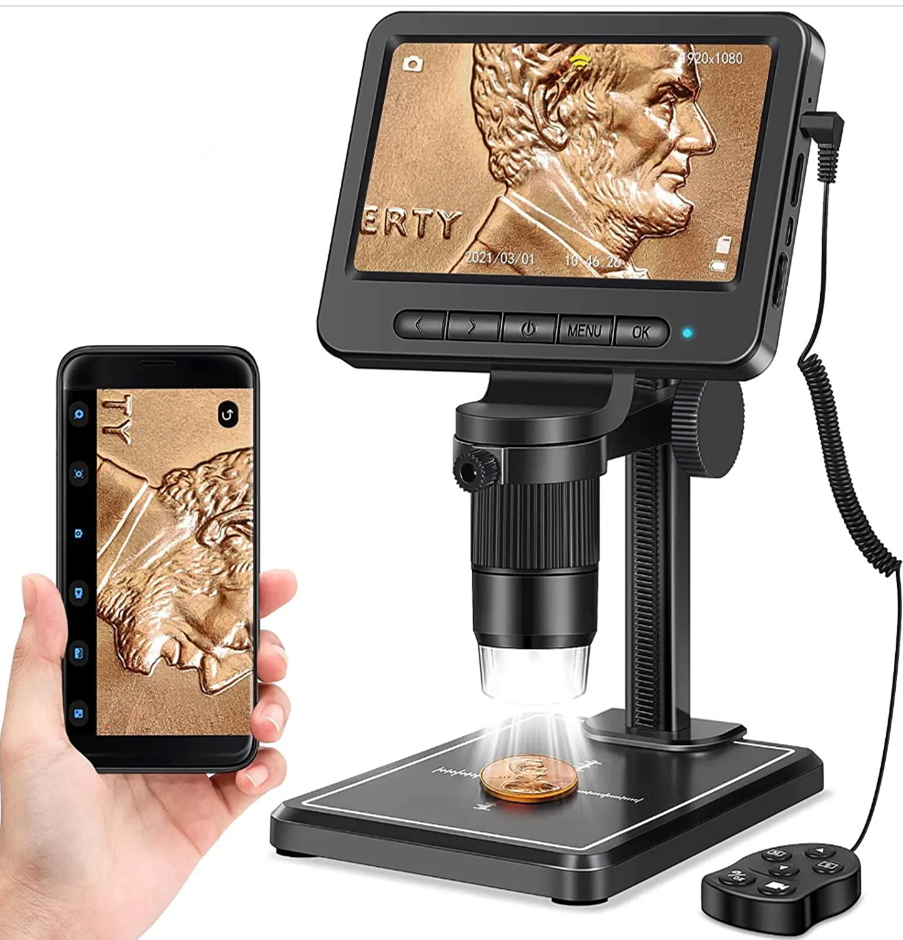
Coin & Relic Cleaning Supplies
Pair text with an image to focus on your chosen product, collection, or blog post. Add details on availability, style, or even provide a review.
- Choosing a selection results in a full page refresh.
